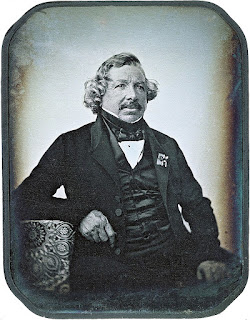"His home would include the home of the dead and buried wizard, and would thus afford the ghost of the latter a kind of privilege to haunt its new apartments, and the chambers into which future bridegrooms were to lead their brides, and where children of the Pyncheon blood were to be born"--The House of the Seven Gables
I decided to post some clips of dance numbers I like!
Twenty-five minutes into Mary Pickford's silent Heart o' the Hills, there's a great dance scene!
"Shanghai Lil" from Footlight Parade. Yankee Doodle Dandy wasn't the only movie to display James Cagney's hoofing talent. Ruby Keeler was a cutie, though putting her in Chinese makeup may make today's viewers uncomfortable. Another great Busby Berkeley number, clearly from the pre-Production Code era!
The Piccolino from Top Hat. Irving Berlin's song has a good beat and you can dance to it, as they used to say on American Bandstand. Hermes Pan's choreography shows the Busby Berkeley influence, of course. Ginger Rogers was one actress who could play smart women!
Part of the Broadway ballet in Singin' in the Rain, choreographed by Gene Kelly himself. Cyd Charisse is doing much the same as that Girl Hunt ballet in The Band Wagon, and two of them are definitely better than one!
The Barn-Raising Dance in Seven Brides for Seven Brothers. Choreographed by the great Michael Kidd, this is what they mean by "rollicking"! (I remember seeing this in London, England at the Museum of the Moving Image.)
The fantasy ballet from Rodgers and Hammerstein's masterpiece Carousel, with Rod Alexander adapting Agnes DeMille's Broadway choreography. Sure, I posted that waltz in my last music clips, and this clip cuts the part where she crashes the fancy party. But it's a truly compelling ballet, and the final moment is honestly painful. (Carousel is one of those movies that gets better and better with repeat viewings!)
"Step in Time" from Mary Poppins. Marc Breaux and DeeDee Wood choreographed, and dance numbers don't get much livelier than this one! The Sherman Brothers became Hollywood's most prolific songwriting team, but they never outdid this early effort.
Lionel Bart's "I'd Do Anything" from Oliver! Onna White's choreography won a special-achievement Oscar. I've seen that movie half a dozen times, and I want to see it again. (My sister saw it twice in one day!)
Chava's ballet, from Sheldon Harnick and Jerry Bock's Fiddler on the Roof. (Tom Abbott adapted Jerome Robbins' Broadway choreography.) It happens just after Tevye's rejected his daughter Chava because she married a gentile. This reminds me of the finale of Wagner's Die Walkure where Brunhilde tried to save Sigmund so her divine father Wotan punishes her with suspended animation in a ring of fire pending rescue by a full-fledged hero. They love each other, but they have to be true to themselves!
And lastly, a National Film Board cartoon of Wade Hemsworth's "Log Driver's Waltz," with vocals by the McGarrigle sisters! (Nice sense of Canadian history...)






























